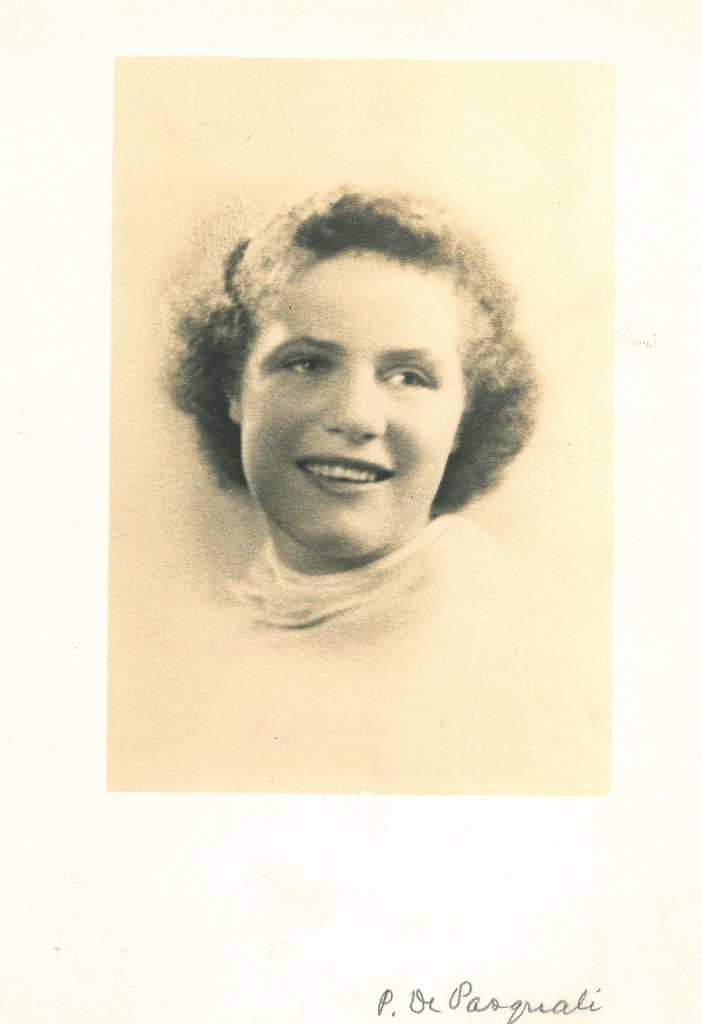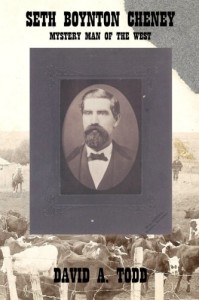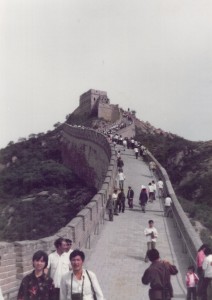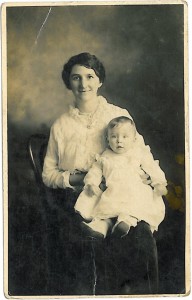
One hundred years ago today, in Riverside, a district of East Providence, Rhode Island, Norman Victor Todd was born. He was the first son of Oscar Todd and Lilly (Vick) Todd. An older sister, Mary, had died sometime the previous year. Four siblings would be born over the next nine years.
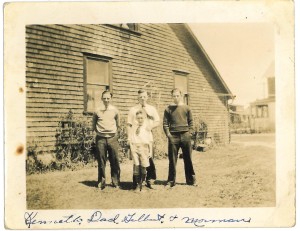
The family home was 15 Viola Avenue in Riverside. Whether this was already purchased at the time of Norman’s birth, or whether it became home as the family expanded, is unknown. Norman attended public school in East Providence, going as far as the 8th grade before dropping out. He wasn’t out of school long, however, as he enrolled in a trade school to learn how to be a linotype operator. He graduated from this, and began his career. So far as I know he had only two jobs his adult life. First he worked for the Delmo Press in Pascoug, RI, driving there every day from East Providence. World War 2 came and he joined the army. After the war he went back to the Delmo Press, but within the year he switched to working for the Providence Journal in downtown Providence, setting type on the night shift. He would eventually retire from this job.
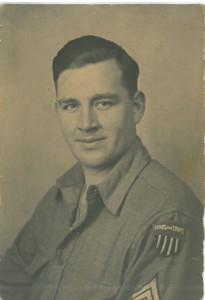
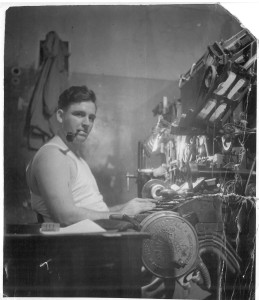
His war service is worthy of a blog post on it’s own. The short version is he started as G.I. Joe, in a unit that at some point would be on the front lines. Already 26 when they sailed first to England and then to North Africa, Norman saw an edition of the Stars and Stripes newspaper. He figured it was being put out by G.I.s, and that they needed typesetters, so he put in for a transfer. It came through just as his LSI was about to embark on the invasion of Italy in 1943. He spent the rest of his time in the army with the Stars and Stripes: in Algiers, Italy, and several locations in Southern France, always attached to General Mark Clark’s 5th Army. He finished the war with the rank of technical sergeant, and mustered out of Europe in August 1945.
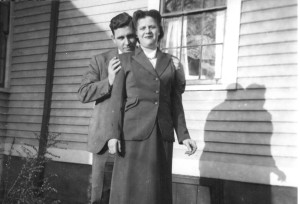
I believe it was soon after his return to R.I. that he met Dorothy A. Sexton. They began a three year courtship that resulted in marriage on January 20, 1950. Norman was 34, Dorothy was 32, neither having been married previously. From 1950 to 1954 they had three children, and moved from Providence to Cranston RI.
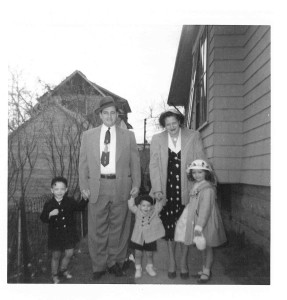
Dad spent the rest of his days at that address. They were years of tragedy and heartbreak for him. Dorothy, unknown to her and Norman, was a very sick woman. Breast cancer resulted in a double radical mastectomy. This was followed by kidney failure, in the years before dialysis was a common and easy to obtain treatment. Her physical condition spiraled downhill, and she died in August 1965. Dad and Mom has 18 years being together, 15 years of marriage. At the time of her death, we three children were 14, 13, and 11.
Dad soldiered on as a single dad. He continued working the night shift at the Journal. He dated little, preferring to use his time to parent his children. We, of course, grew up. Two of us moved far away. One moved halfway across state. Okay, that’s a joke—in Rhode Island halfway across state is still very close. Technology overwhelmed him at work, as electronic typesetting moved and made hot lead type obsolete. He tried for a year to adjust to the new way of doing things, something he’d been doing for four decades, but couldn’t master the technology. Dad took early retirement in 1976, at age 60.
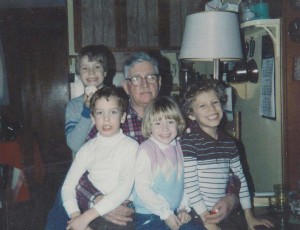
From then, Dad lived a quieter and lonelier existence at the house on Cottage Street. He enjoyed regularly seeing my brother and his family, and the less frequent visits from me and my family, and the even less frequent visits from my sister. He made few trips out of state, coming to see us twice and his brother in Florida once. He was fortunate to know all his grandchildren. When he passed away in 1997 at age 81, he was still in his house, having lived there for almost 47 years, the last 32 of them as a widower, the last 21 of them alone.
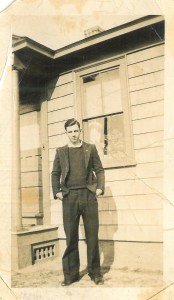
I’ve tried several times to write a memoir/history of the lives of Norman and Dorothy Todd, both in manuscript and typing, and have been unable to do so. I need to get this done, however, or most of this history dies with me. Perhaps writing this short tribute to Norman will spur me to get on with the work. I just need to figure the structure and style, and get writing.
Norman—Dad—was one of the quiet heroes of this world, a hero because he persevered under great trial, and never broke, never gave up. He was a patriot—a patriot because he faithfully did the small, everyday things that make a nation great: such as obeying the law, working for his keep, paying his bills and taxes. And he was the world’s best role model of a husband and a dad. I got to observe him for 45 years, first up close, then at a distance. My life is better for it.

